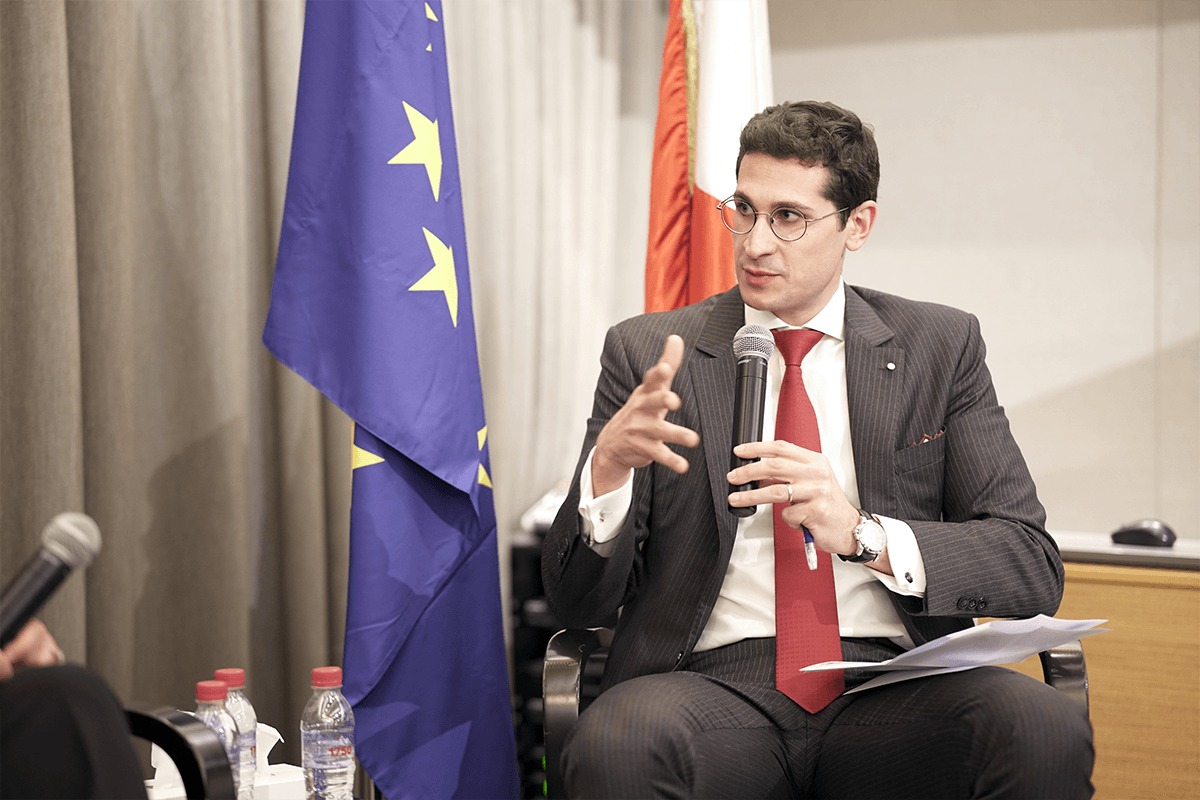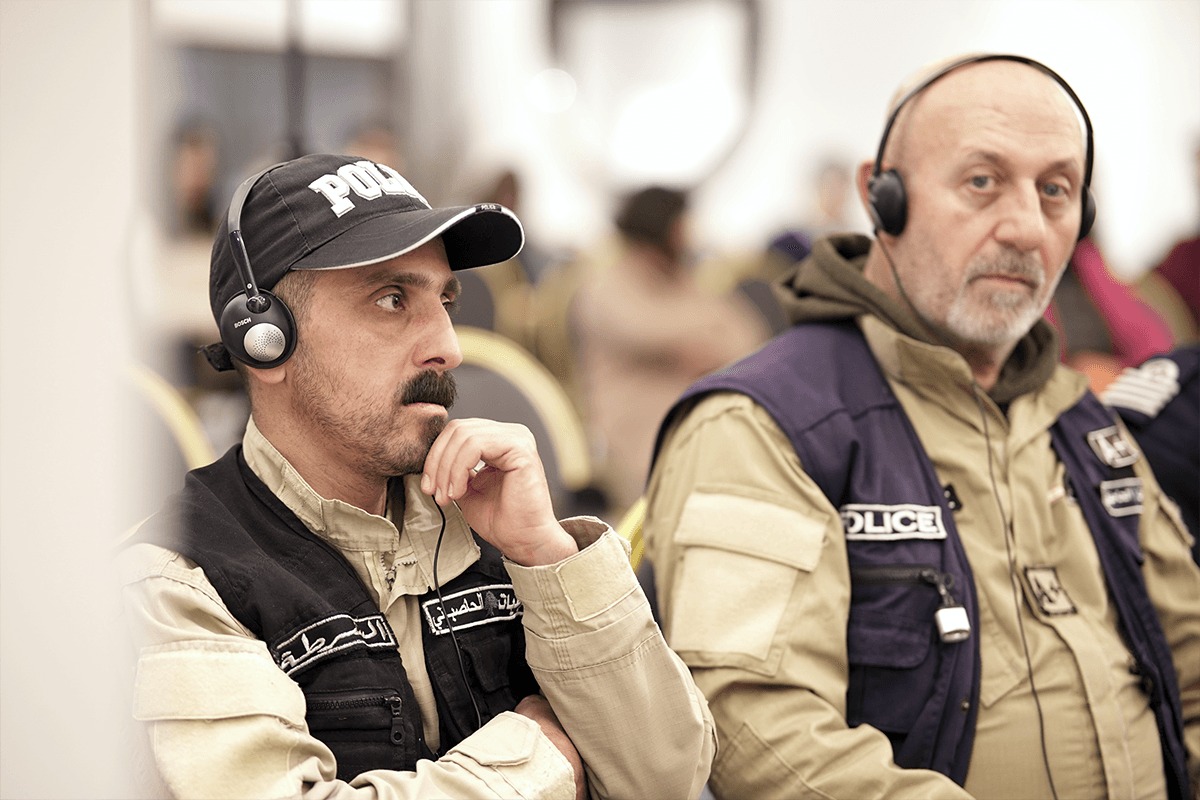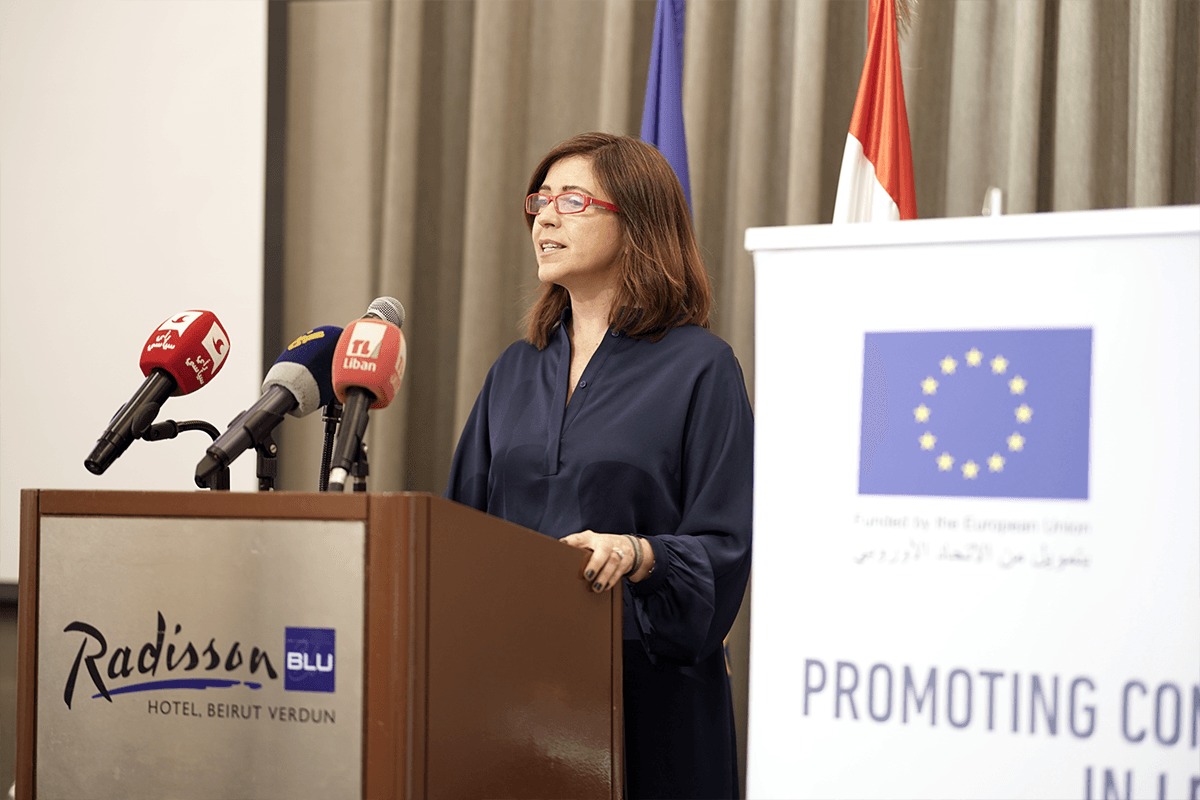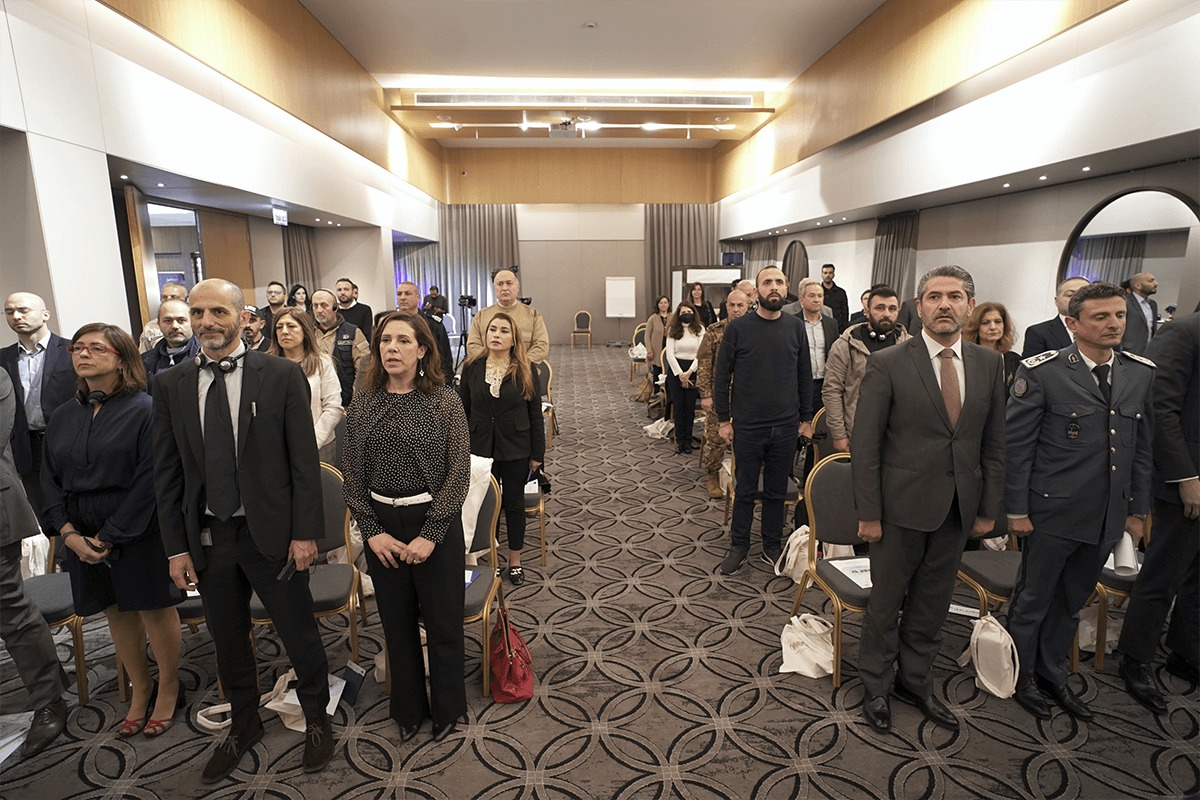Democracy Reporting International (DRI) held an advocacy conference on 16 March as part of the “Promoting Community Policing Project”. The project is funded by the EU and co-implemented by FIIAPP and Civipol. DRI is leading on the implementation of the new framework in five municipalities and one union of municipalities. Director Generals, governors, district representatives, mayors, heads of unions of municipalities, representatives of security agencies, experts, and civil society activists attended the event.
The conference promotes the adoption of the unified municipal police regulatory framework among the largest number of municipalities and unions of municipalities across Lebanon. The event began with introductory speeches from Faten Abou Hassan, Director General of Local Administrations and Councils, who represented the Ministry of Interior and Municipalities, and Mr. Andrea Luigi Battista, representing the EU Delegation to Lebanon. Battista highlighted the support provided by the EUD towards reforming the security sector in Lebanon.
The project coordinator of the Spanish International and Libero-American Foundation for administration and Public Policies (FIIAPP), Consuelo Navarro, presented the project’s objectives and achievements. DRI Country Representative in Lebanon, André Sleiman, shed light on the core mandate of the municipal police and its impact on trust-building in the local community
The conference included a discussion panel, moderated by DRI, and hosting DGLAC Faten Abou Hassan, Head of Jezzine Union of Municipalities Khalil Harfouche, Judge at the Court of Accounts Elie Maalouf, Senior Expert at the “Promoting Community Policing Project” Thomas Valetas, and UNDP Chief Technical Advisor Nino Karamaoun. The panel discussed the differences between the old and new regulatory frameworks, the importance of adopting the new normative basis, the roles conducted by the municipal police, and the challenges they face daily. They also discussed the importance of coordination between the municipal police and multiple security agencies.
The recommendations and comments from the audience focused on enhancing the relation between the MP and the security agencies and set a sustainable coordination mechanism between them, and between the MP and all the stakeholders:
-The municipality itself and the municipal employees, the security, the local citizens, and the refugees.
- Promoting the code of human rights throughout the work of the MP. Enhancing the trainings provided by the ISF to the MP, promote them among all municipalities, tailor them as per the needs, and increase the number of the ISF training centers to cover the largest geographic area of Lebanon to support the largest number of municipalities.
- Increasing awareness among the local citizens on the important and multiple roles conducted by the MP maybe through media campaigns held by the ministry.
- Pushing the municipalities to review their current MP regulatory frameworks and urge them to look for enhancements and amendments using the unified template adopted at the level of the ministry.
- Enhancing the rights of the municipal employees, including the MPs, and their financial support systems: salaries, NSSF, insurance, rights as civil citizens, and rights of the MP members during a certain activity.
- Highlighting the damage caused by the political interferences on the work of the MP and set regulations and rules to limit them and finally eliminate them. Pushing the community and the municipal council to promote for hiring female MP officers.
A summary was shared with the Ministry of Interior and Municipalities to guide further amendments.
The conference was an essential step towards advocating for the adoption of the unified municipal police regulatory framework in Lebanon. With the support of high-ranking officials, experts, and direct stakeholders, the conference highlighted the importance of developing the work of the municipal police and to set better coordination with the different security agencies to provide better service to the local community.

















